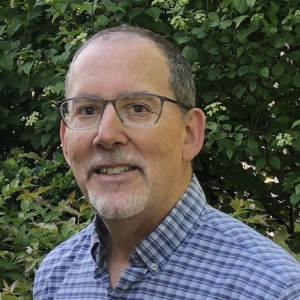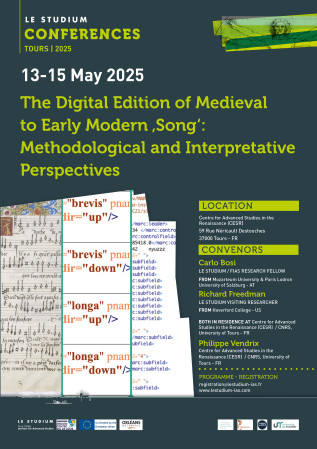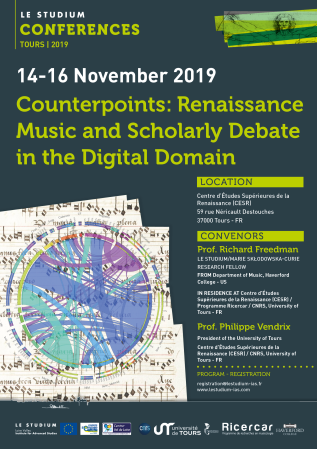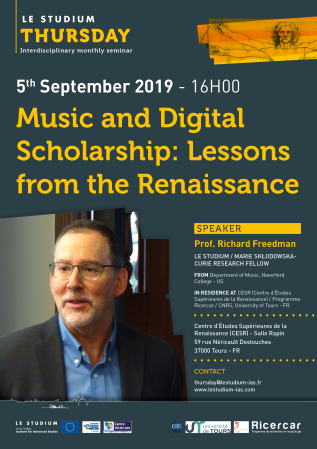Richard Freedman

From
Department of Music, Haverford College - US
In residence at
Centre for Advanced Studies in the Renaissance (CESR) / CNRS, University of Tours - FR
Host scientist
Philippe Vendrix
BIOGRAPHY
Richard Freedman is Professor of Music and John C. '43 Whitehead Professor of Humanities at Haverford College, where he has worked since 1986. He is the author of two books: The Chansons of Orlando di Lasso and their protestant listeners: music, piety, and print in sixteenth-century France (Rochester, 2001), and Music in the Renaissance, 2, vols. (New York, 2012; also available in Spanish translation via Akal publishers [2018]). He is also general editor (with Prof Jeanice Brooks) of A Cultural History of Music in the Renaissance, A Cultural History of Music, 3 (London, 2023), as well as many essays in leading journals and encyclopedias.
Freedman's record of work with digital applications for the study of music has involved a wide range of musicologists, information scientists, and developers from the CESR in Tours, from The Maryland Institute for Technology in the Humanities (University of Maryland), from the Digital Scholarship Lab of Haverford College, as well as a dozens of participating scholars and students from around the world. The Lost Voices Project (2012–2014; http://digitalduchemin.org) was supported by prestigious awards from the National Endowment for the Humanities and the American Council of Learned Societies. His latest digital research project Citations: The Renaissance Imitation Mass (2014–Present; http://crimproject.org), has been supported by a transatlantic partnership grants from the Mellon Foundation and the Maison des sciences de l'homme, and the American Council of Learned Societies. During 2019 he held the Marie Skłodowska-Curie Research Fellowship from Le Studium (the Loire Valley Institute for Advanced Study in Orléans) to support his work with the Centre d'études supérieures de la Renaissance in Tours.
He has served in leadership roles for major scholarly societies: as Digital and Multimedia Scholarship Editor for The Journal of the American Musicological Society, as Chair of the Technology Committee for the American Musicological Society, as Chair of the Digital and Electronic Media Committee (and member of the Board of Directors) for the Renaissance Society of America, and as member of the Board of Directors of Répertoire International de Littérature Musicale (the leading bibliographical authority for writings on music). He also represents the American Council of Learned Societies at the Union Académique Internationale.
At Haverford College, Freedman has served as Chair of the Music Department, Chair of the Educational Policy Committee (our curriculum committee), as a member of Academic Council (our tenure and review committee), the Faculty Affairs and Policies Committee and Representative to the Board of Managers, and as Associate Provost for Curricular Affairs (with responsibility for directing our accreditation review).
Freedman is also a frequent pre-concert lecturer with the Chamber Music Society of Philadelphia and with the Philadelphia Orchestra.
PROJECT 2 (2025)
Making Musicology in a Digital age
What does the study of music look like in an age of ubiquitous data? How have we collected and categorized music, in all its richness? And how can digital tools help us understand musical style and structure, particularly when it comes to the music of the distant past? As my host Philippe Vendrix explains in the introduction to EarlyMuse (https://earlymuse.eu/; a major European Cooperation in Science and Technology [COST] project), the field of early music has always been marked by hybridity: a meeting ground of theory and practice, of scholarship and performance, of the material and the immaterial. Now the digital turn in scholarship, and the central place of digital media in culture more broadly, bring new opportunities and challenges to this mix.
The experimental basis of my project, briefly stated, is to find ways to advance two key axes—one technical, the other social. Thus one portion of my work will focus on “music as data” and “data about music” at both micro and macro levels of detail. During this phase of work, I will advance techniques for the curation of quality data, the development of algorithms and machine learning systems for music, and the elaboration of systems for mapping and linking knowledge. But I will also help seasoned professionals and aspiring graduate students alike direct this kind of “applied human intelligence” to the machine tools that increasingly mediate our experience with all forms of culture, and that shape knowledge systems, too. If musicology is to succeed in a digital age, we will need to involve digital natives in this work. And if young musicologists are to succeed in the rapidly changing landscape of the academy and culture industry more broadly, they will need to hone digital skills early in their careers.
PROJECT 1 (2019)
CRIM: the Renaissance Imitation Mass
Citations: The Renaissance Imitation Mass (CRIM) is devoted to the digital representation and shared analysis of sixteenth-century Imitation Masses (Missae ad imitationem), the only musical genre (a corpus of about 500 works) to define itself by the process of transforming pre-existing music in order to create new works. The latest project in a series of long-standing collaborations between Richard Freedman (Haverford College, USA) and members of the Programme Ricercar (CESR, Université of Tours), and an extended team of musicologists and information technology specialists in the USA, Canada and Europe, CRIM will build upon recent developments in the digital domain for music scholarship, implementing a new kind of durable quotable text for music using open-source tools developed for use with the Music Encoding Initiative XML data standard.
The team of scholars and advanced students led by Freedman and his research partners at the Programme Ricercar are using these technologies to build an innovative database of music-analytic observations prepared according to a controlled vocabulary of types that describes the complex contrapuntal relationships found in our corpus. These observations, moreover, will be bound together with commentaries and annotations prepared by individual researchers, which in turn will be made widely discoverable via Linked Open Data and Open Annotation ontologies.
We will also break much new ground by exploring data analytic and machine learning approaches to music, both by exploring patterns within our observed data and by modeling various algorithmic approaches to discovering similar patterns by automated means. CRIM will enhance musicological research through its novel digital editions and analytical annotation tools; through its improved understanding of citation and transformation processes of pre-existing materials in music, and through its novel meeting of specialists from musicology and information science.
Publications
Final reports
Building upon recent developments in digital music scholarship, Citations: The Renaissance Imitation Mass investigates similarity and borrowing in music on a massive but detailed scale, using digital tools that only a few years ago were beyond our grasp. Our work focuses on the craft of musical counterpoint, and how musicians of the sixteenth century transformed pre-existing pieces to make intricate cyclic compositions from familiar sounds. The CRIM team, an accomplished group of scholars and data scientists active in Europe, North America, and Australia, will assemble a diverse collaborative network of music scholars and students at colleges, music schools and university graduate programs, extending the reach of digital scholarship to new users, and building new communities.



